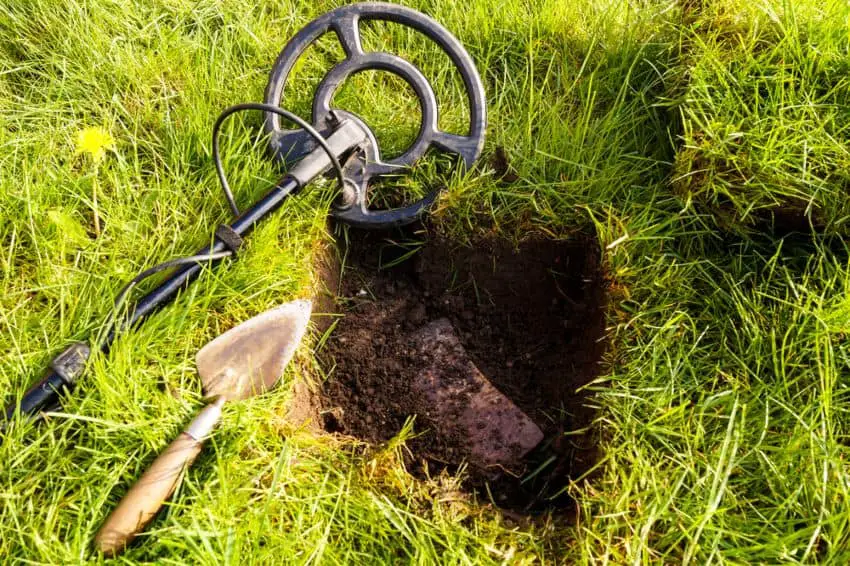
Hunting for meteorites is a great aspect of the hobby that you should definitely try! Nothing can be more exciting than using a metal detector to find an object from SPACE …
… But, can metal detectors detect meteorites? Since, in most cases, meteorites contain iron, nickel, or sometimes both which are moderately conductive electrically, then most detectors could pick them up … The main challenge is being able to identify such a rock and have a prior idea on places where you will have more chances finding them.
Indeed, it is not that easy to find one, but it is definitely possible! Detectorists who search for meteorites study the scientific composition of these rocks first and then hunt in areas that have a high probability of yielding them.
Meteorites could be highly precious due to their aesthetics, rarity, and size! In fact, they can be among the most valuable materials found on Earth.
In this Post, I breakdown most of what you should be aware of to increase your chances finding these types of rocks with you beloved metal detector …
… Let’s go!
Best Metal Detector for Meteorite Hunting …
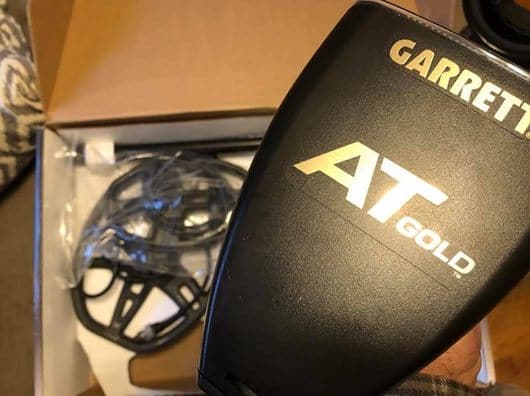
Generally gold detectors (Check this Gold Detector Here at Amazon) are best suited to pick up meteorites! Simply because these rocks could be found in small sizes and could be, also, pretty low in conductivity … And for that you will need to operate on higher frequencies which would certainly give you enough sensitivity to find them …
… Also, we are not talking here about relics that could be buried pretty deep, instead meteorites could, in many cases, be literally on the surface of pretty close to it. So, no need for very low frequencies to penetrate deeper underneath the soil!
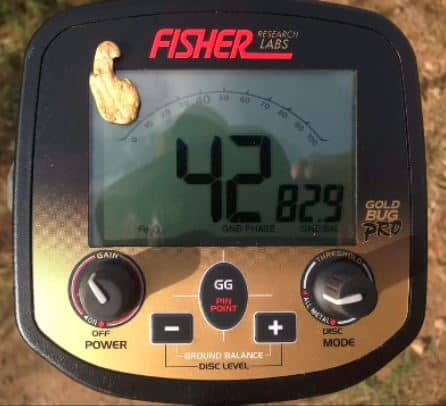
However, if you’ve got a limited budget, you can still opt for a Fisher Gold Bug (Check it Here at Amazon), or even a Fisher F75 … lol I am all about Fisher (I don’t know why!) … But anyway, they are good models that you might try …
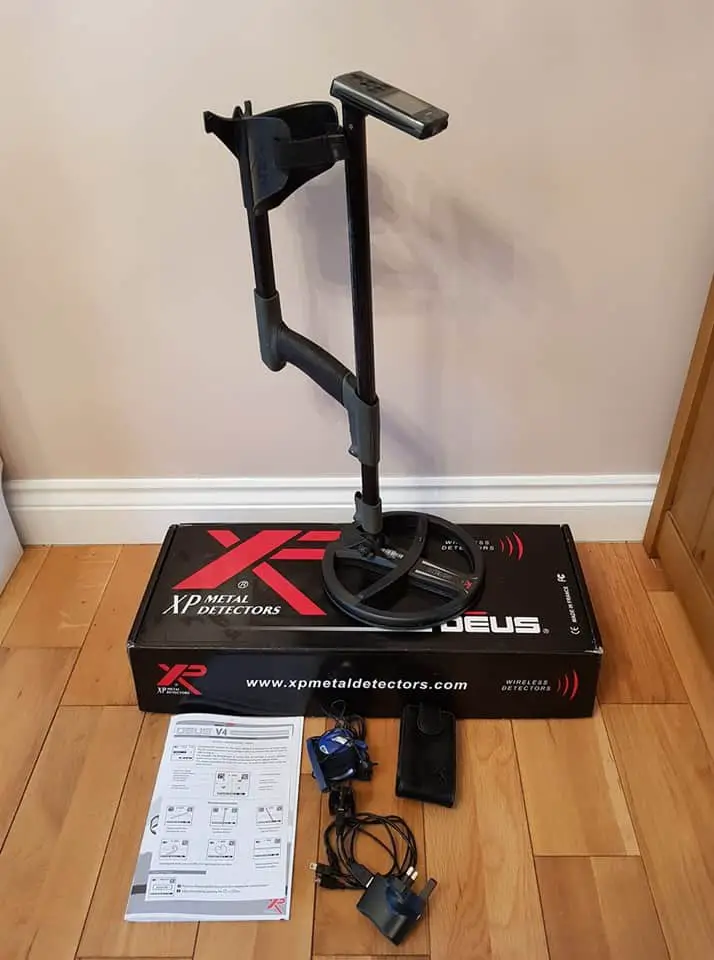
… But, the one model that has proven its efficiency for picking up meteorites specifically is XP Deus (Check it Here at Amazon) …
… Indeed, it is a multi-frequency model with 17 search modes, several coils, a powerful battery, and a solid discrimination speed. In addition, it has some additional powerful features:
- A completely waterproof Double D 11-inches coil
- Possibility to update the operating software
- Weatherproof Headphones that will allow you to pick up feint signals even in noisy environments.
- Possibility to customize 8 search modes.
What are the best places to look for meteorites?
This varies, obviously, on where you are living … The first thing to consider is to find out (through simple researches) where meteorites generally fall in your country wherever you live.
According to experts, the best places to search for meteorites are in locations that have been identified as ‘strewn fields! These are places where several meteorites from the same fall have already been recovered.
There are many such strewn fields across the United States, and the most yielding states are known to be Texas, California, and Arizona. For example, the Gold Basin in Arizona is a well-known strewn field where many detectorists have found meteorites with their machines.
Another example is the Nullarbor Plain in Australia, where there are extensive meteorite deposits. Similarly, there are places all around the world that are known strewn fields, and you should do your research well before you start hunting for meteorites.
You should also consult online databases such as the Meteoritical Society’s database on where all meteorites have been found previously. This is where you might find them …
… There are also other databases that have maps to show the places with most meteorite discoveries. Pinpointing the nearest hot spot for meteorites closest to where you live is the best place to start detecting.
What are the odds of finding a meteorite?
While news about a meteor shower appears quite frequently, chances of finding it is not very huge to be honest! In fact, many experts confirm that finding a meteorite is similar to searching for a needle in a haystack …
… But for someone like me, that’s the beauty of it! I mean, proving the odds to be wrong is a beautiful thing to do!
In addition, according to NASA, 48.5 tons of extraterrestrial material such as small chunks of asteroids and dust rain down on earth every day. However, many of these objects burn up before they fall to ground.
The Meteoritical Society records only 1824 confirmed findings of meteorites in the US before 1807 and July 2019.
So, as you can see, the odds of finding a meteorite are indeed quite low. However, if you are dedicated to search for a meteorite and you do your research properly, then it you may end up finding one.
How can you identify a meteorite?
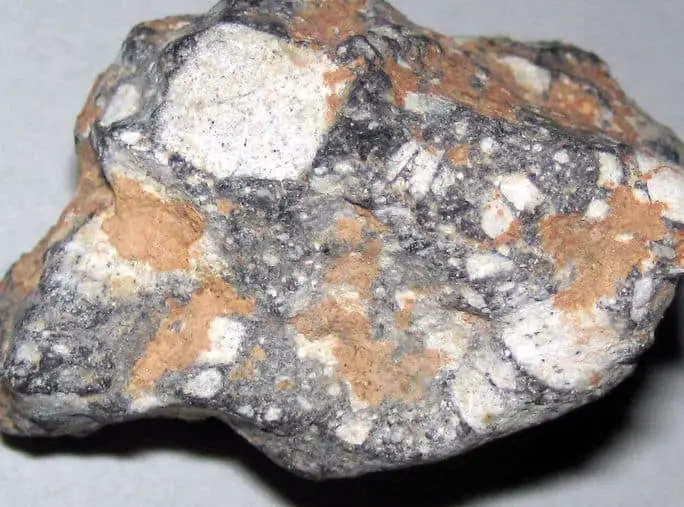
You need to be aware of how to distinguish and identify a meteorite from other rocks. Indeed, there are many different types of meteorites, and not all of them can be easily identified!
The easiest way, I know, to identify them is to measure their basic characteristics. These include:
- Being magnetic (Use a strong magnet for that)
- There is a fusion crust (a dark, glassy crust that is produced by melting of its surface)
- Density (You can sense that if you compare it with any regular rock)
- Presence of iron-nickel metal
- Thumbprint-like impressions on the rock
- Chondrules, which are small, rounded particles that are embedded in the meteorite. Visually you can clearly see that they were formed at very high temperatures.
When you find the right candidate for a meteorite, the first thing you need to do is to take a very close look at the surface of the rock. If you find micrometeorites, then you will need a magnifying glass or microscope to take a better look.
Meteorites are known to have a thin and shiny black coating, known as the fusion crust. This develops as a result of the rock barreling through the atmosphere, generating enough heat to melt the surface a little.
Other marks include regmaglypts, which are thumbprint like shapes on the surface and looks like someone picked up wet clay and pressed a little too hard with their thumbs onto it. They are also not perfectly round in shape. So spherical pebbles are unlikely to be meteorites.
The longer a meteorite is present on earth, the more prone it is to weathering, so it may lose these subtle signs that help you identify them. If you find a rock that you believe could possibly be a meteorite, the only sure shot way of identifying it is to get it tested from a lab.
Are meteorites worth anything?
Their value depends on several factors! These include the rarity, size, and the aesthetics.
Documented finds of meteorites are amongst the most valuable materials found on earth. They can easily surpass the value of platinum, gold, and even diamonds in many cases.
For example, one of the largest documented meteorites weighed in at around 1400 pounds and was found in Kansas (Learn where to metal detect in Kansas). The meteorite was valued at over one million dollars.
Stones that are not classified are of the least value, and will only be worth around 0.50 cents per gram. If you find a more unusual specimen, then it can be worth around $400 per gram.
A lunar or Martian meteorite can be quite valuable, having a value of up to $1000 per gram. Most meteorites sell somewhere within this range itself.
Steps to Follow to find meteorites…
Below I list the main steps you should generally follow to find one:
Step 1: Choose a location – As I’ve said before, you can look through many online databases that keep records of where meteorites have been found. Pinpoint the nearest hot spot to find your meteorite.
Step 2: Get Permission – Indeed, the chosen area might require a permission to use your detector. In fact, you need to find out about who owns the land you want to search on and, if privately owned, take the owner’s permission before searching. Public lands have different rules, so you need to find out and get permission from the governing body to search on it. You also need permission to keep the meteorite if you find one (This depends on which country you are in, so make you
Step 3: Choose the best possible detector – XP Deus is probably the best choice, yet other lower entry machines could do the job.
Step 4: Have a GPS – it will help you keep track of your position in case you get lost, and it will also allow you to mark the location of any potential meteorites that you find.
Step 5: Be ready to dig – Sometimes you may find a meteorite just lying on the ground. Other times, your machine will pick up a signal from deep in the ground. So bring a spade and pickaxe to help you dig the ground.
Step 6: Test the rock for magnetic properties – If you have found a potential meteorite, the first step is to test the rock for magnetic properties. All you need to do is hold a magnet near the rock to determine if there is any magnetism. Keep in mind that there are some terrestrial rocks as well that have magnetic properties.
Step 7: Look at the density of the rock – Due to the high iron and nickel content, meteorites tend to be quite dense. They are denser than regular terrestrial rocks, meaning that they are heavier than other rocks. So pick up the rock and try to feel how heavy it feels as compared to a terrestrial rock of the same size.
Step 8: Search for common meteorite traits – Some common characteristics can be found in many meteorites. These traits are discussed above. Look for these traits to identify whether you have a meteorite or not.
Step 9: Do a streak test – Dragging the rock across a piece of paper or a streak plate should not leave a streak. Or, the streak should be weak and gray in color. Then it might be a meteorite. A streak plate is made from unglazed ceramic, and you can find them online.
Conclusion
I am happy that you’ve took the time to read this article from start to finish! I mean, meteorites are not as common of a find as coins for example…
… And many interested hobbyists, are not willing to do the right research before going out! And since you are doing your research, you are ahead of many people already!
Really hope you’ve learnt few more useful tips here that you will use in your advantage…
… Finally, if you want to find more meteorites I highly invite you to go for states like Texas! Fot that, check this detailed article.
